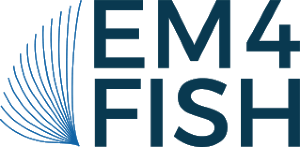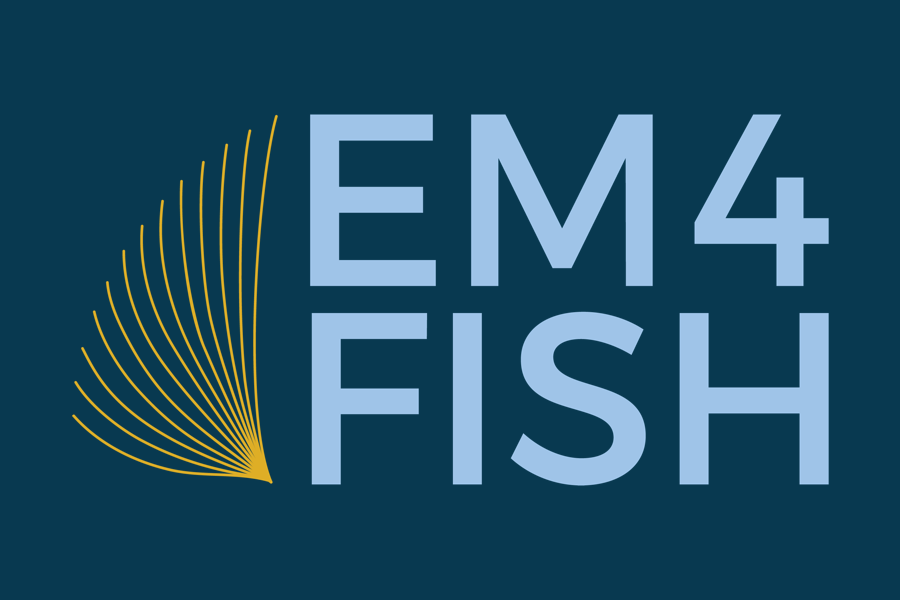By: Melanie Sturm and Erika Feller
The National Fish and Wildlife Foundation (NFWF) is pleased to announce the release of our third request for proposals (RFP) for projects that catalyze the implementation of electronic technologies (ET) for catch and compliance monitoring and improvements to fishery information systems in U.S. fisheries.
Timely, accurate and reliable data is an essential ingredient to managing fish stocks sustainably. But U.S. fisheries are diverse in their needs and conditions. Around the U.S., commercial and recreational fishery leaders, states and federal agencies, universities, NGOs and service providers are working to build better data systems that support decision making, improve management efficiency, and support creative solutions to fishery management challenges. Inherent in the design of “better data systems” is the principle that resolving data uncertainties, improving quality, opening communication, and increasing collaboration has positive economic and ecological results over time.
NFWF’s Electronic Monitoring and Reporting (EMR) Grant Program – with the support of our partners at NOAA, the Gordon and Betty Moore Foundation, and the Kingfisher Foundation – funds fishery-driven projects that develop and implement promising electronic technologies to improve the timeliness of fisheries data, increase knowledge of fisheries for management purposes, and empower fishermen, both commercial and recreational, to become more actively involved in the data collection process.
Deploying cameras on boats too small to accommodate observers, making catch accounting technology more readily available to anglers, and streamlining the video review of commercial fishing trips are some of the innovations that NFWF has supported. NFWF prioritizes voluntary, cost-shared programs because fisheries data should serve purposes beyond better management. Such modernization efforts may enable fisheries managers to make shorter-term regulatory adjustments, allow scientists to calculate a more accurate depiction of stock levels, and improve the utility of fisheries-dependent data such that it can also help fishermen make better-informed decisions. And all of these efforts can offer cost savings across-the-board.
To date, NFWF grantees are seeing some notable results on the water. A few examples are:
- Starting in 2018, regulations will allow longline and pot vessels in Alaska to use an electronic monitoring system in place of a human observer.
- In the Gulf of Mexico, 350 federally-permitted charter vessels are piloting the use of tablets to electronically report fishing trips and activity and the Council is considering alternatives for the sector to move to electronic reporting.
- In New England, grantees are looking to create incentives for fishermen to adopt electronic monitoring for species such as Atlantic cod, flounder and others in the New England groundfish fishery as well as ways to leverage that data into improved fishery management.
- In April 2017, the Pacific Council provided NMFS with recommendations and guidance to implement an electronic monitoring program in the West Coast groundfish fishery.
While we are excited to continue to support these and other important data collection projects, a number of national and regional studies such as the Improving Net Gains report and NMFS’ Regional Electronic Technology Implementation Plans have looked at such efforts underway around the U.S. and concluded that in order to achieve the benefits of ET for fisheries, a focus on data management and use is a necessary complement to improved data collection. In response to these recommendations, NFWF’s 2017 EMR RFP priorities also includes a new emphasis on projects that will address data management needs.
NFWF is excited to be part of promoting the future of U.S. fisheries in this way but we need partnerships and project ideas from local communities. Please visit NFWF’s website to learn more about the EMR Grant Program 2017 Request for Proposals and share the opportunity with relevant organizations and businesses. If you would like to learn more, we will host a webinar for potential applicants on August 15 from 3:00-4:00 p.m. Eastern Time. Interested individuals must register in advance for the webinar by clicking here.
Illustration courtesy Saltwater, Inc.

